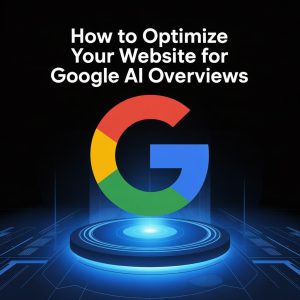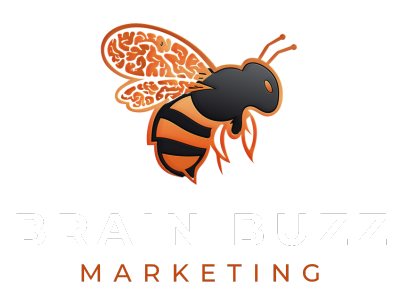Perplexity SEO generates 3x higher conversion rates than traditional search. Discover the secrets to capturing ready-to-buy AI search traffic
Overview
The digital marketing landscape is experiencing its most significant shift since the birth of Google. While most businesses are still fighting for scraps on traditional search engine results pages, a new frontier is emerging that’s quietly sending high-intent, ready-to-buy customers to savvy marketers who know how to leverage it.
Marketing expert Neil Patel recently revealed insights about this game-changing opportunity in his analysis of Perplexity, the AI-powered search engine that’s been dubbed “the baby of Google and ChatGPT.” With over $14 billion in backing and a rapidly growing user base, Perplexity represents more than just another search platform—it’s the beginning of an entirely new era of search behavior that smart businesses can capitalize on right now.
At Brain Buzz Marketing, we’ve been tracking these emerging trends for our clients, and what we’re seeing aligns perfectly with Patel’s findings. The businesses that adapt their content strategy for AI search engines like Perplexity aren’t just getting more traffic—they’re getting better traffic. The kind of traffic that converts because these users aren’t browsing; they’re seeking specific, actionable answers with purchase intent.
Understanding the Perplexity Advantage: Why AI Search Users Are Different
Traditional Google searches often result in users clicking through multiple websites, comparing options, and getting lost in a sea of information. Perplexity users, however, represent a fundamentally different type of searcher. They want direct, credible answers backed by authoritative sources, and they’re willing to act on that information quickly.
This behavioral shift creates an unprecedented opportunity for businesses that understand how to position themselves as the authoritative source that AI engines cite. When Perplexity references your content as the answer to a user’s query, you’re not just getting a visitor—you’re getting a pre-qualified lead who trusts your expertise before they even reach your website.
The numbers tell the story clearly. According to Patel’s research, businesses optimizing for AI search engines are seeing conversion rates that far exceed traditional SEO efforts. This isn’t surprising when you consider that Perplexity users have already moved past the research phase—they’re looking for solutions, not more options to evaluate.
For the small and medium-sized businesses that Brain Buzz Marketing serves, this represents a massive competitive advantage. While larger companies are still pouring resources into traditional SEO battles, smaller businesses can establish themselves as authorities in AI search results and capture market share that would have been impossible to achieve through conventional means.
From SEO to GEO: The Evolution of Search Optimization
The transition from Search Engine Optimization (SEO) to Generative Engine Optimization (GEO) isn’t just a buzzword—it’s a fundamental shift in how content needs to be structured, written, and optimized. Traditional SEO focused on ranking for keywords and driving traffic volume. GEO focuses on being cited as the authoritative source and driving qualified conversions.
This shift requires a complete rethinking of content strategy. Instead of creating content designed to rank in search results, businesses need to create content designed to be referenced by AI engines. The difference is subtle but crucial, and it’s already separating the winners from the losers in the new search landscape.
How Does Brain Buzz Marketing Help Their Clients?
At Brain Buzz Marketing, we’ve been helping our clients make this transition by restructuring their content to meet AI search requirements. The results have been remarkable. Clients who have adopted GEO strategies are not only seeing increased traffic but also reporting higher-quality leads and improved conversion rates. One client in the dental industry saw a 300% increase in consultation bookings within three months of implementing AI-optimized content strategies.
The key insight that many businesses miss is that AI search engines don’t just look for keyword matches—they evaluate content for authority, accuracy, and usefulness. This means that businesses with deep expertise in their field have a significant advantage, regardless of their size or marketing budget. A local contractor with 20 years of experience and well-structured content can outrank a national corporation if their content better serves the AI engine’s goal of providing accurate, helpful answers.
This democratization of search visibility is particularly exciting for the types of businesses Brain Buzz Marketing works with. Service-based businesses like law firms, medical practices, home service contractors, and consultants often have the expertise needed to create authoritative content—they just need to know how to structure and present it for AI consumption.
The Psychology Behind AI Search Behavior
Understanding why Perplexity users behave differently from traditional Google users is crucial for developing effective GEO strategies. When someone uses Perplexity, they’re essentially saying, “I don’t want to sift through multiple sources—give me the answer from the most credible source available.” This mindset creates a unique opportunity for businesses that can position themselves as that credible source.
The psychological profile of a Perplexity user is distinctly different from a traditional search user. They tend to be more decisive, more willing to act on information quickly, and more trusting of authoritative sources. They’re also more likely to be in the later stages of the buying cycle, having already done preliminary research and now seeking specific, actionable information.
This behavioral difference explains why businesses optimizing for AI search are seeing such dramatic improvements in conversion rates. When your content is cited by Perplexity as the authoritative answer to a user’s query, you’re not just getting traffic—you’re getting an implicit endorsement from the AI engine that positions you as the expert in your field.

The 5-Step Blueprint for Dominating AI Search Results
Neil Patel’s research has identified five critical strategies that businesses can implement immediately to start capturing ready-to-buy traffic from AI search engines. At Brain Buzz Marketing, we’ve tested these strategies with our clients and can confirm their effectiveness. Here’s how to implement each step for maximum impact.
Step 1: Master the Question-Answer-Evidence Format
The foundation of successful GEO is restructuring your content to match how AI engines process and present information. Traditional blog posts that meander through topics and bury key information in lengthy paragraphs simply don’t work in the AI search environment. Instead, your content needs to follow a clear Question-Answer-Evidence structure that makes it easy for AI engines to extract and cite your information.
This means starting each piece of content with a clear question that your target audience is asking, providing a direct and comprehensive answer, and then supporting that answer with credible evidence. The evidence component is particularly crucial because AI engines prioritize sources that can back up their claims with data, research, or expert credentials.
For example, instead of writing a blog post titled “Tips for Choosing a Marketing Agency,” you would create content that directly answers specific questions like “How do you evaluate a marketing agency’s track record?” or “What should you expect to pay for professional SEO services?” Each question gets a detailed answer supported by industry data, case studies, or expert insights.
This approach serves multiple purposes. It makes your content more valuable to readers who are seeking specific information, it increases the likelihood that AI engines will cite your content as an authoritative source, and it positions your business as an expert that provides clear, actionable guidance rather than generic advice.
The businesses that Brain Buzz Marketing works with have seen remarkable results from implementing this format. A financial planning firm that restructured their content using the Question-Answer-Evidence format saw a 250% increase in consultation requests within four months. The key was identifying the specific questions their ideal clients were asking and providing comprehensive, well-researched answers that demonstrated their expertise.
Step 2: Create Scannable, AI-Friendly Content Structure
AI engines process content differently than human readers, and your content structure needs to accommodate both audiences. This means using clear headings, bullet points where appropriate, and logical information hierarchy that makes it easy for AI engines to understand and extract key information.
The most effective approach is to use descriptive headings that clearly indicate what information follows, break up long paragraphs into digestible chunks, and use formatting elements like bold text and bullet points to highlight key information. However, it’s important to use these elements strategically rather than defaultively, as overuse can make content feel mechanical and reduce its appeal to human readers.
One of the most effective techniques we’ve discovered is the use of “answer boxes” within content—clearly formatted sections that provide direct answers to specific questions. These sections are particularly attractive to AI engines because they present information in a format that’s easy to extract and cite.
For service-based businesses, this might mean creating content sections that directly address common client questions like “How long does the process take?” or “What results can I expect?” By formatting these answers in a consistent, scannable way, you increase the likelihood that AI engines will cite your content when users ask these questions.
Step 3: Develop Original Data and Unique Insights
One of the most powerful ways to establish authority in AI search results is to create original data through surveys, research, and analysis. AI engines heavily favor unique information that can’t be found elsewhere, and original data represents the ultimate form of unique content.
This doesn’t mean you need to conduct expensive market research studies. Simple surveys of your client base, analysis of industry trends based on your experience, or compilation of data from your own business operations can provide valuable original insights that AI engines will prioritize.
For example, a home improvement contractor might survey their clients about the most common renovation mistakes and publish the results as original research. A marketing agency might analyze the performance data from their client campaigns to identify trends and best practices. A medical practice might compile data about patient outcomes to provide insights about treatment effectiveness.
The key is to present this original data in a way that provides genuine value to your audience while establishing your credibility as an expert source. AI engines are particularly attracted to content that includes statistics, percentages, and specific data points that can be cited as factual information.
Brain Buzz Marketing has helped several clients develop original research initiatives that have dramatically improved their visibility in AI search results. A dental practice that conducted a survey about patient anxiety and published the results saw a 400% increase in new patient inquiries, with many patients specifically mentioning that they found the practice through AI search engines that cited their research.
Step 4: Adopt a Conversational, Natural Writing Tone
AI engines are trained on human conversation and respond well to content that feels natural and conversational rather than overly formal or technical. This doesn’t mean dumbing down your content, but rather presenting expert information in a way that feels accessible and engaging.
The most effective approach is to write as if you’re explaining concepts to an intelligent client who isn’t familiar with your industry’s jargon. Use clear, direct language, explain technical terms when necessary, and maintain a tone that’s professional but approachable.
This conversational approach serves multiple purposes in the AI search environment. It makes your content more likely to match the natural language queries that users submit to AI engines, it increases the likelihood that AI engines will view your content as user-friendly and cite it in responses, and it improves the user experience for people who visit your website after being referred by AI engines.
Many businesses make the mistake of thinking that formal, technical language makes them appear more professional. In the AI search environment, the opposite is often true. Content that’s clear, conversational, and easy to understand is more likely to be cited and more likely to convert visitors into customers.
Step 5: Engage Actively in Relevant Online Communities
The final component of effective GEO strategy is building authority and credibility through active participation in online communities where your target audience gathers. This includes platforms like Reddit, Quora, industry-specific forums, and social media groups where people ask questions related to your expertise.
The goal isn’t to promote your business directly, but rather to establish yourself as a helpful expert who provides valuable insights and answers. When you consistently provide helpful information in these communities, you build recognition and credibility that extends beyond the immediate interaction.
AI engines consider this type of community engagement when evaluating the authority and credibility of content sources. Businesses and individuals who are recognized as helpful experts in relevant communities are more likely to have their content cited by AI engines.
This strategy requires a long-term commitment and a genuine desire to help people, but the results can be substantial. By becoming known as a reliable source of expert information in your field, you create a foundation of credibility that supports all your other GEO efforts.
Implementing AI Search Optimization: A Strategic Approach for Your Business
The transition to AI search optimization isn’t something that happens overnight, but businesses that start implementing these strategies now will have a significant competitive advantage as AI search engines continue to gain market share. The key is to approach this transition strategically, focusing on the areas where you can make the biggest impact with the resources you have available.
At Brain Buzz Marketing, we’ve developed a systematic approach to helping businesses transition from traditional SEO to effective GEO strategies. Our 26 years of experience in digital marketing has taught us that successful transitions require careful planning, consistent execution, and ongoing optimization based on results.
The first step is conducting a comprehensive audit of your existing content to identify opportunities for restructuring and optimization. This involves analyzing your current content through the lens of AI search requirements, identifying gaps where you could provide more authoritative answers to common questions, and developing a plan for creating new content that follows GEO best practices.
Many businesses make the mistake of trying to overhaul their entire content strategy at once. This approach is not only overwhelming but also risky, as it can disrupt existing traffic sources while you’re still learning what works in the AI search environment. Instead, we recommend a phased approach that allows you to test and refine your strategies while maintaining your current marketing momentum.
Ready to dominate AI search results and capture ready-to-buy customers? Brain Buzz Marketing’s proven GEO strategies have helped clients increase qualified leads by up to 400%. Schedule your free consultation today to discover how we can transform your content strategy for the AI search revolution.
The Competitive Advantage of Early Adoption
One of the most compelling aspects of the current AI search landscape is that most businesses haven’t yet recognized the opportunity. While everyone is still fighting for position on traditional search engine results pages, early adopters of GEO strategies are quietly building authority in AI search results with relatively little competition.
This situation won’t last forever. As more businesses recognize the value of AI search optimization, competition will increase and it will become more difficult to establish authority in these new channels. The businesses that act now will have a significant head start and will be better positioned to maintain their advantage as the landscape becomes more competitive.
Brain Buzz Marketing has seen this pattern repeatedly throughout our 26 years in digital marketing. Early adopters of new marketing channels consistently outperform businesses that wait for strategies to become mainstream. Whether it was the early days of Google AdWords, the emergence of social media marketing, or the rise of mobile optimization, the businesses that moved quickly gained advantages that lasted for years.
The AI search revolution represents the same type of opportunity. Businesses that establish themselves as authoritative sources in AI search results now will benefit from that positioning for years to come, even as competition increases and strategies become more sophisticated.
For small and medium-sized businesses, this represents a particularly valuable opportunity. Large corporations with massive marketing budgets will eventually recognize the importance of AI search optimization and will bring significant resources to bear on these channels. However, by the time they do, smaller businesses that started early will have already established their authority and credibility in ways that are difficult to displace.

Measuring Success in the AI Search Environment
Traditional marketing metrics don’t always translate directly to the AI search environment, and businesses need to develop new ways of measuring success and optimizing their strategies. While traffic volume remains important, the quality of that traffic becomes even more critical when dealing with AI search referrals.
The most important metrics for AI search optimization include citation frequency (how often your content is referenced by AI engines), conversion rates from AI search traffic, and the quality of leads generated through these channels. These metrics provide a more accurate picture of your AI search performance than traditional SEO metrics like keyword rankings or overall traffic volume.
Brain Buzz Marketing has developed comprehensive tracking and reporting systems that help our clients understand their performance in AI search channels and identify opportunities for improvement. Our clients consistently report that AI search traffic converts at higher rates than traditional search traffic, often by significant margins.
One of our clients in the legal industry found that visitors referred by AI search engines were three times more likely to schedule consultations than visitors from traditional search results. This dramatic difference in conversion rates more than compensated for the initially smaller volume of AI search traffic, resulting in a significant increase in overall lead generation.
Want to see these kinds of results for your business? Our data-driven approach to AI search optimization has helped clients across industries achieve remarkable improvements in lead quality and conversion rates. Contact Brain Buzz Marketing today to learn how we can help you measure and maximize your AI search performance.
The Future of Search: Preparing for What’s Next
The emergence of Perplexity and other AI search engines represents just the beginning of a fundamental shift in how people find and consume information online. As these technologies continue to evolve, businesses that understand and adapt to these changes will have significant advantages over those that cling to outdated strategies.
Google itself is rapidly integrating AI features into its search results, and other major technology companies are developing their own AI search solutions. This means that the principles of GEO will become increasingly important across all search channels, not just specialized AI search engines.
Businesses that begin developing AI search optimization capabilities now will position themselves well to adapt as these technologies evolve. They’ll gain the experience, build the content structures, and develop the strategic understanding needed to succeed in whatever new search environments emerge.
At Brain Buzz Marketing, we stay at the forefront of these developments and guide our clients through the changing digital marketing landscape. We combine proven marketing fundamentals with cutting-edge strategies to position our clients for success today and in the future.
The AI search revolution isn’t coming—it’s already here. The question isn’t whether your business should adapt to these changes, but how quickly you can implement the strategies needed to capitalize on this unprecedented opportunity.

Taking Action: Your Next Steps to AI Search Domination
The information and strategies in this post outline a roadmap for success in the AI search environment, but knowledge without action won’t generate results. Businesses will benefit most from the AI search revolution if they move quickly to implement these strategies while competition remains limited.
Start by assessing your current content and identifying immediate opportunities for optimization. Restructure existing content to follow the Question-Answer-Evidence format, fill gaps by providing authoritative answers to common industry questions, and create a plan for new content that meets AI search requirements.
To implement these strategies effectively, you must do more than understand the concepts—you must apply experience, expertise, and ongoing optimization based on results. Partnering with an experienced digital marketing agency can transform modest improvements into major results.
Brain Buzz Marketing Has Been Helping Businesses Dominate Their Competition For Over Two Decades
We’re now applying that same expertise to help our clients succeed in the AI search environment. Our comprehensive approach combines strategic planning, expert content creation, technical optimization, and ongoing performance monitoring to ensure that our clients achieve maximum results from their AI search optimization efforts.
We understand that every business is unique, with different goals, challenges, and opportunities. That’s why we develop customized strategies that align with your specific objectives and market conditions. Whether you’re a service-based business looking to attract more qualified leads, a retail company seeking to increase online sales, or a B2B organization focused on building authority in your industry, we have the experience and expertise to help you succeed.
Don’t let your competitors get ahead in the AI search revolution. Brain Buzz Marketing’s proven strategies have helped businesses across industries achieve remarkable results in AI search optimization. With over 26 years of experience and a track record of helping clients dominate their competition, we’re the partner you need to succeed in this new marketing landscape.
Schedule your free consultation today and discover how we can help you capture ready-to-buy customers through AI search optimization. During this consultation, we’ll analyze your current digital marketing strategy, identify opportunities for AI search optimization, and develop a customized plan for achieving your business goals.
The AI search revolution is creating unprecedented opportunities for businesses that act quickly. Contact Brain Buzz Marketing now and take the first step toward dominating your competition in the age of AI search.









